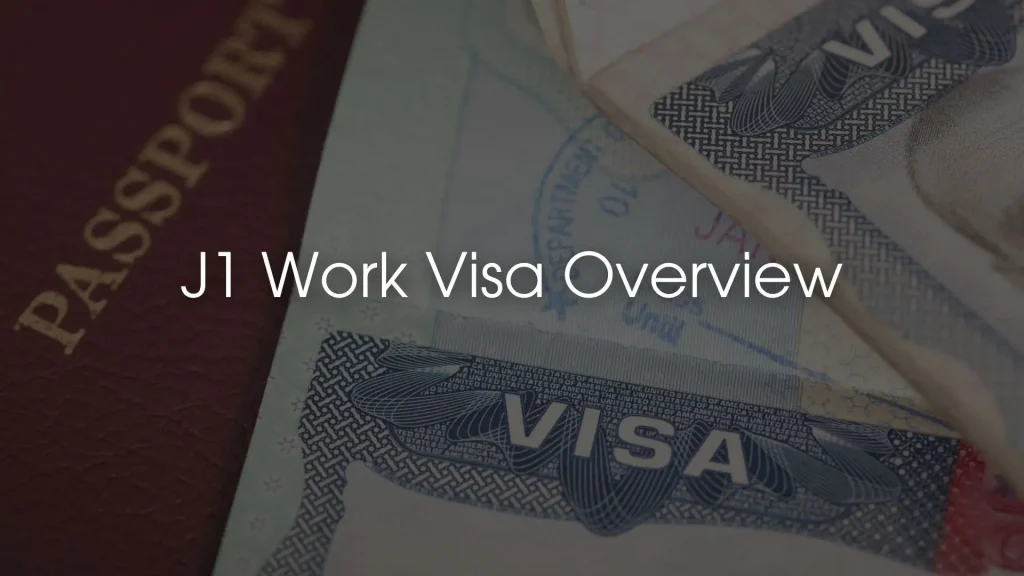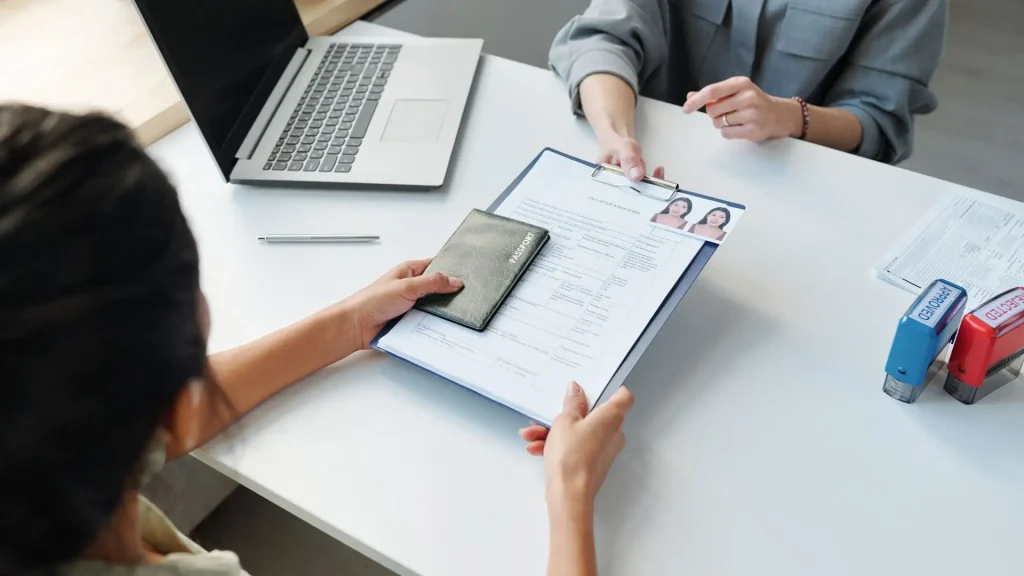
If you plan to visit the US for an approved study or exchange program, you must apply for a J1 work visa. A J1 work visa is a nonimmigrant visa granted to participants in cultural or educational exchange programs. Examples of those who would need a J1 work visa would include:
- Professors and research assistants
- Students
- Government interns
- Teachers
- Nannies
- Research associates
Purpose and Eligibility Criteria for J1 Work Visa
The purpose of a J1 work visa is so that members of an approved cultural or educational exchange program can come to study or work in the US. To apply for a J1 visa, you must apply through a pre-approved sponsor organization. According to 22 CFR 62.4, the current categories of eligibility are:
- Student
- Short-term scholar
- Trainee
- Teacher
- Professor
- Research scholar
- Specialist
- Alien physician
- International visitor
- Government visitor
- Camp counselor
- Au pair
- Summer work and travel
- Work intern
In addition to belonging to a program from one of the above categories, J1 visa applicants must also demonstrate proficiency in the English language. Lastly, J1 visa holders must have health insurance for the entirety of their exchange program.
J1 Work Visa Application Process
Below are the significant steps in applying for a J1 work visa.
Find a J1 Program Sponsor
First, you must identify and apply for a program that can sponsor your J1 visa. The US government has a list of designated sponsor programs you can search here. Depending on the sponsor, you may have to pay an application fee to apply to the program.
Complete Form DS-2019
Once you are accepted into a sponsor program, they will provide a Form DS-2019 or a Certificate of Eligibility for Exchange Visitor Status. The DS-2019 lists your contact information, the program you are attending, your program start/end dates, and the estimated exchange visitor program costs.
Pay the SEVIS Fee
After completing Form DS-2019, you must pay the Student Exchange Visitor Information System (SEVIS) fee. Be sure to print out a receipt proving you paid this fee.
Complete Form DS-160
The next step is filling out Form DS-160 from the US Department of State’s website. Form DS-160 is a nonimmigrant application form that all prospective visa holders must complete. Similar to DS 2-10, Form DS-160 contains your personal information, information about your status in the US, and details of when you arrive and leave. The fee for processing Form DS-160 for a J1 visa is $185.
Schedule an Interview
Once you finish the DS-160, you must schedule an interview at your local US embassy. During the interview, you must bring a copy of your Form DS-2019, a copy of your Form DS-160 confirmation page, a valid passport, and a digital photo that meets US government requirements. After the interview, the officer on your case will notify you of visa approval or denial.
Duration and Extensions for J1 Work Visa
 The exact time you are allowed to stay on a J1 visa depends on the specific category under which you apply. The allowed time to remain in the United States can vary between a few weeks for an intern and several years for teachers and physicians. Your J1 visa should last long enough for you to complete the entirety of your educational or cultural exchange program. However, following the proper visa appointment guide before your interview can help ensure there are no delays or issues that could cut your experience short.
The exact time you are allowed to stay on a J1 visa depends on the specific category under which you apply. The allowed time to remain in the United States can vary between a few weeks for an intern and several years for teachers and physicians. Your J1 visa should last long enough for you to complete the entirety of your educational or cultural exchange program. However, following the proper visa appointment guide before your interview can help ensure there are no delays or issues that could cut your experience short.
You can apply to extend your stay on your J1 visa. Your current J1 visa must be valid, and you must fill out a new DS-2019. Depending on your specific circumstances, you may have to provide the following additional documentation to extend your J1 visa:
- Evidence of finances to cover your stay
- Record of arrival and departure
- Documents detailing the reasons for your extension
- Proof of paid SEVIS fee
- Additional documentation, as requested
You must apply for a J1 visa extension or a US work visa application at least ten days before your visa expires. Otherwise, you will be ineligible for extension consideration. The exact length of your granted extension will depend on your specific program. If the US government denies your extension, you have a 30-day grace period to return to your home country. This timeframe is significant for students and exchange visitors, as it is tracked through the funded educational and exchange visitor information system (SEVIS), as your visa status and compliance are closely monitored.
Austin’s Trusted Immigration Attorneys
Navigating issues concerning J1 work visas and other nonimmigration visas is difficult without specialized knowledge. An immigration attorney can help you apply for your visas and ensure you meet all documentation and filing requirements. Our team is here to help you understand your rights and take the first step toward securing the necessary benefits. Contact the Law Office of William Jang, PLLC online or call us today for a case evaluation with an Austin visa application attorney.
Related Post
Comparing the K-1 Fiancé Visa and CR-1 Spouse Visa








